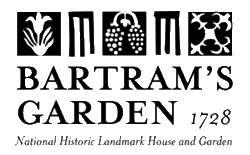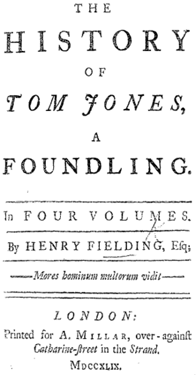LETTERS FROM THE GLOBAL PROVINCE
The Past Recaptured, Global Province Letter, 17 August 2011
The Past Recaptured. Marcel Proust's The Past Recaptured deals with the marvelously convoluted personal past of the author himself.  In certain witching hours he can summon up the wondrous taste of a madelèine from childhood—its textures, tastes, as well as the very moment and space when it was consumed. This was his personal past, a solitary memory rather than an invocation of the collective past of his society or country. But surely our history as a nation or our re-creation of Western society can enrich our lives and bind us all together at this moment when fragmentation and distrust alienate man from man throughout the West. We need to tap into our rich national memory.
In certain witching hours he can summon up the wondrous taste of a madelèine from childhood—its textures, tastes, as well as the very moment and space when it was consumed. This was his personal past, a solitary memory rather than an invocation of the collective past of his society or country. But surely our history as a nation or our re-creation of Western society can enrich our lives and bind us all together at this moment when fragmentation and distrust alienate man from man throughout the West. We need to tap into our rich national memory.
Gigantic, Uncivilized Predators are on the Loose. Rupert Murdoch's News International has gobbled up huge chunks of the United Kingdom's media and, as is evident, has so skewed British society that the UK can no longer really govern itself. Despite the protests of the British Parliament that it has shown itself to be a worthy part of democracy, the three parties and the MPs have shown themselves to be toadies in the face of a sordid institution that dares to call itself a champion of the free press. Britain may have a licentious press, but it is certainly not a free press. The citizenry can only be grateful that one newspaper, but only one—The Guardian—has shown itself to be free and honorable, and a counterweight to the News International thugs.
We are just as riven in the United States, played upon as we are by our financial institutions. True financial reform has not been accomplished, and both the commercial and investment banks are getting away with murder. The commercial banks in particular are making the bulk of their returns from trading activities, which would, in an orderly world, warrant that they maintain a much larger pile of capital so that the government does not have to bail them out again. Meanwhile all our financial institutions are diverting huge amounts of capital into useless, quicksand schemes, draining capital away from more productive activity. They are day traders and gamblers, not investors.
With Murdoch in Great Britain and Goldman (not to say AIG) loose in the States, we must urge ourselves to think back to times when things worked pretty well and one could see, as least retrospectively, that the Western World was moving forward.
Building a Bridge to the 18th Century. The late and great Neil Postman of NYU suggested that we hearken back to the 18th in Building a Bridge to the 18th Century: How the Past Can Improve our Present. As Postman says, "You can take any century you please and make a list of its inhumanities. The eighteenth is no exception. But it is there, and in no other, that we have the beginnings of much that is worthwhile about the modern world."
Postman would say that the 18th is rich with ideas that will equip us well for the 21st. We would add that it had the further virtue of setting the stage for the modern world, but, on the other hand, it did not turn its back on the ancients, integrating in its thinking medieval thought and other work of the ancients. It was modern but not self-consciously modern. And it drove the whole world forward, the polar opposite of our present climate where inertia rules the roost.
Founding Gardeners. In both America and Great Britain and other parts of the Western World, the globe sported men of incredible breadth who made it a sparkling century and who set the stage for much of the domestic bliss that was to follow in Western Europe and the United States. In this vein, it is invigorating to close in on the thinking and words and acts of our nation's founders. Washington, Jefferson, Madison, Adams, Hamilton, Monroe, and on and on. Simply remarkable men.
 In time, of course, our founders split into parties and had fervent, passionate, and sometimes downright seamy debates over policy and motive. We had our Federalists and Jeffersonian Democrats. But it is what united our founders that is more interesting. Despite their considerable differences, they melded together in their common vision of the United States as an agrarian nation. The vision was not just theoretical, for we discover that they were passionate gardeners and farmers.
In time, of course, our founders split into parties and had fervent, passionate, and sometimes downright seamy debates over policy and motive. We had our Federalists and Jeffersonian Democrats. But it is what united our founders that is more interesting. Despite their considerable differences, they melded together in their common vision of the United States as an agrarian nation. The vision was not just theoretical, for we discover that they were passionate gardeners and farmers.
This truth is well understood in Andrea Wulf's Founding Gardeners: The Revolutionary Generation, Nature, and the Shaping of the American Nation, which simultaneously is a very good account of our early history that also bursts with detail on the intense garden and farming passions of the Founders. We learn that many on different sides of the debate at the Constitutional Convention went out to see the diverse plants and trees of one John Bartram. The idyll brought them together and paved the way for the eventual compromises that led to the Constitution. Wulf, a British gardening historian, knows us well. She understands that the American encounter with a very sumptuous nature and ever-moving frontier determined our character, outlook, and unity.
This shared vision was the means by which our forefathers overcame the sometimes bitter differences that crept into political debate. All the Western democracies need some such binding idea now to heal differences and overcome pettiness.
Tom Jones The 18th century also gave birth to one of the earliest novels, which is a great favorite of ours. It was Henry Fielding's The History of Tom Jones, A Foundling. A rich comedy in the best sense, it portrays semi-rural England as a lovely place where things will turn out all right in the end. Its characters are three-dimensional, unlike the slapstick figures in the very satirical movie version of Tom Jones made in the 20th century.
The 18th century also gave birth to one of the earliest novels, which is a great favorite of ours. It was Henry Fielding's The History of Tom Jones, A Foundling. A rich comedy in the best sense, it portrays semi-rural England as a lovely place where things will turn out all right in the end. Its characters are three-dimensional, unlike the slapstick figures in the very satirical movie version of Tom Jones made in the 20th century.
The 18th is more than a century of very good ideas. It was a time of optimism amidst institutions and towns and groupings that one could get one's arms around. It was not the plaything of media empires and rogue banks which could upend the whole of society. Maybe we can use it as a model of how we can cut our bloated institutions down to size...
P.S. Wags have already put together the cast for a movie on Murdochville called Hackgate.
P.P.S. We do have at hand a senior statesman who can help lead us out of the wilderness. Paul Volcker, the onetime Fed chairman, does advise the President, but his advice is only half taken. In times of terrible inflation, he put us back on the straight and narrow, and set the stage for the good times that came late in the 20th century. But George the Younger Bush, Mr. Clinton of Arkansas, and our worst Fed Chairman in history, Alan Greenspan, simply wrecked our fiscal system.
Home - About This Site - Contact Us
Copyright 2011 GlobalProvince.com